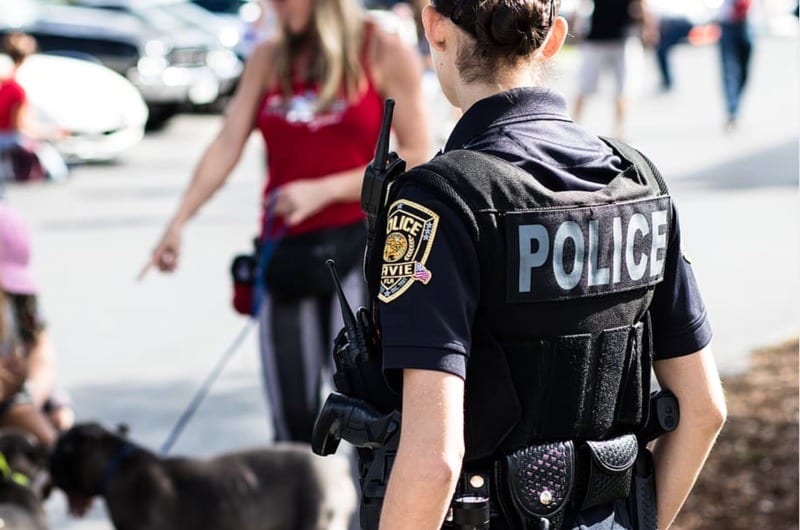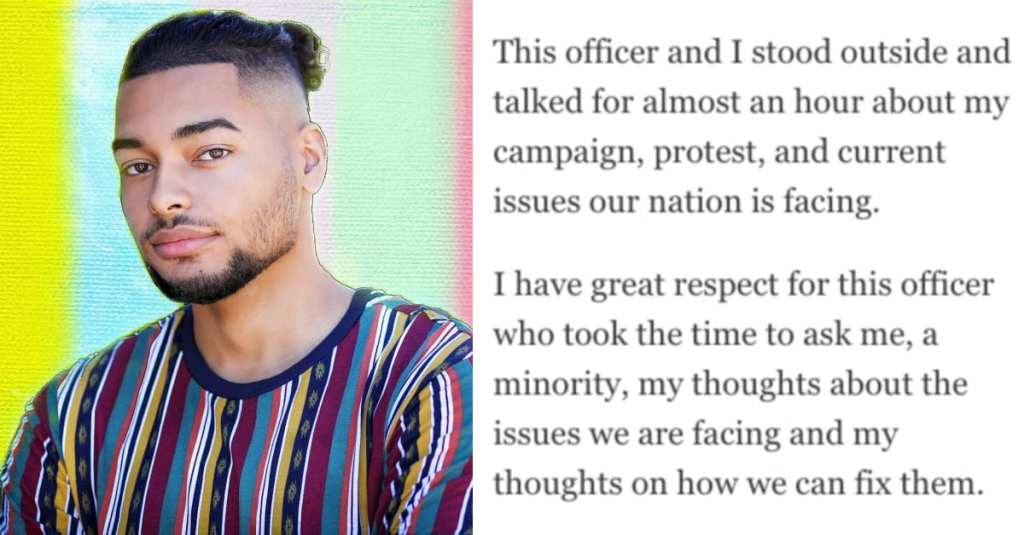Dujuan Thomas may be young, but he is working for real change in his hometown of Paducah, Ky.
The model and actor is running for mayor on a platform of improving the city’s infrastructure, paving the way to better revenue flow from events and festivals, attracting more business and increasing tourism. As a minority man, he’s particularly interested in giving a voice to the marginalized citizens of Paducah.
One evening, he was out alone on a city street straightening one of his campaign banners when he saw a patrol car slowly pull up beside him. He wrote about his experience over on Love What Matters.
“Is everything okay?” The officer asked. Then the cop recognized the young man as a mayoral candidate and asked him if they could talk.
This officer and I stood outside and talked for almost an hour about my campaign, protest, and current issues our nation is facing.
I have great respect for this officer who took the time to ask me, a minority, my thoughts about the issues we are facing and my thoughts on how we can fix them.
Thomas and the police officer, who is involved with training for the entire Paducah Police Department, discussed the importance of mutual respect between law enforcement and the minority community. They agreed that community leaders need to condemn police brutality and unjust murders of citizens swiftly and as the best path to unity within their city.
Tonight marked a step forward in ensuring Paducah continues to keep their officers professional and inclusive in the community.
Police officers are humans, and tonight proved to me something I already knew: not all officers are bad.
Thomas concluded his thoughts with a desire for other police departments to see the lengths Paducah goes to ensure the badge is only carried by professionals who will honor it. “As he told me, PPD is strict on who they hire, and some people are NOT cut out to be cops,” Thomas wrote.

Photo Credit: Piqsels
Conversations like these don’t always get attention, but we need to keep having them.
More importantly, we must listen to each other, so we can make the changes needed for people to be treated equally no matter the color of their skin.

